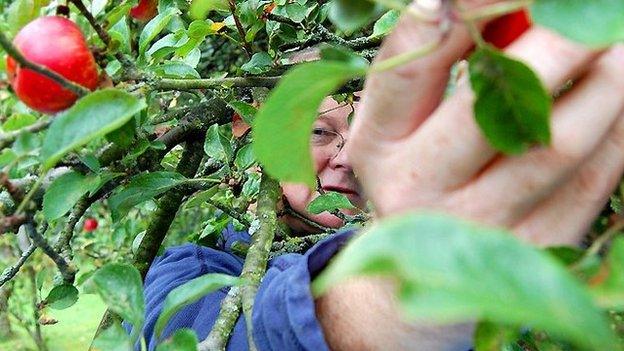Hundreds of rare cider apples preserved in West country
- Published
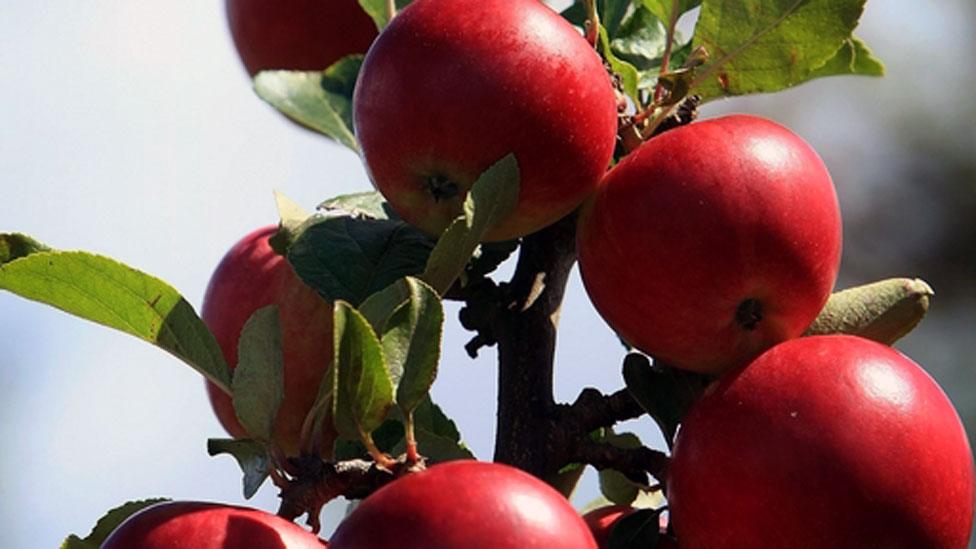
The National Cider Collection will be housed at orchards across England
Hundreds of varieties of rare cider apples are being planted across England after being donated to the National Trust by a collector.
The Netherton Late Blower, Slack-ma-Girdle and Billy Down Pippin are among the National Cider Collection grown in Tidnor Wood orchard, Herefordshire.
They were grown over 25 years by Henry May, who wanted to save old apple varieties in danger of disappearing.
Some are being returned to the counties they grew in hundreds of years ago.
Mr May has done much of the work to take cuttings from his trees, which have been grafted onto new tree roots.
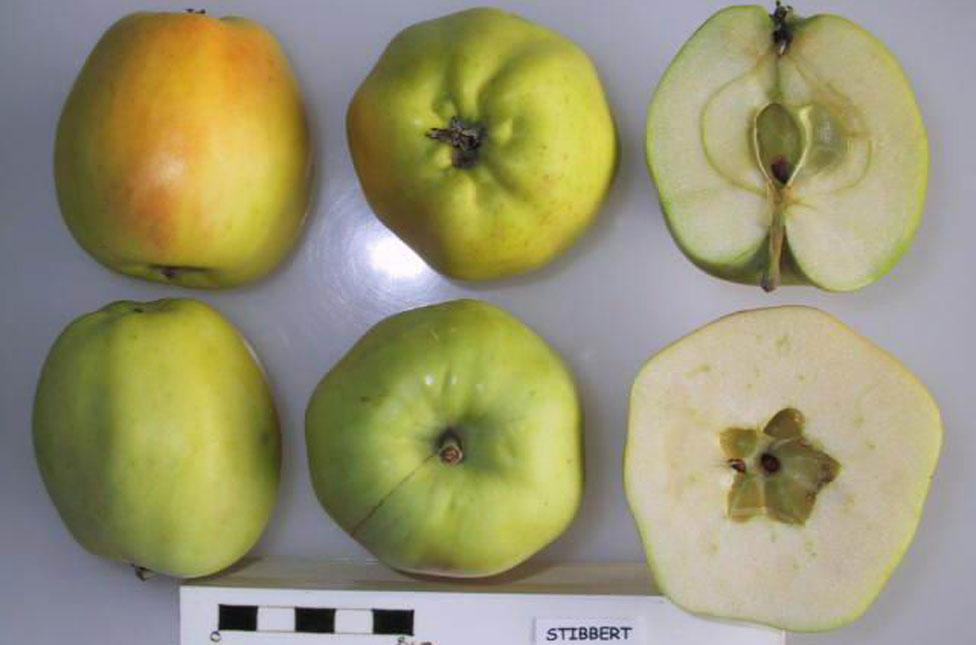
The Summer Stibbert, donated by Mr May, is among varieties returning to the West of England
These are being planted at Montacute House, Barrington Court and Glastonbury in Somerset, Tyntesfield near Bristol, Golden Cap in Dorset, Westbury Court Garden in Gloucestershire, Killerton in Devon and Brockhampton in Herefordshire.
Some varieties date back to the 1700s and the aim is to stop "many of the rarer varieties becoming lost forever", the National Trust said.
The trees are too young to bear fruit immediately but it is hoped they will be used to produce cider in about seven years' time.
Mr May, a former customs and excise officer who used to collect cider duty, spent years tracking down rare species and gathering samples to grow in his orchard.
He said he decided to collect cider apples having been "beguiled by their names for many years".
UK cider industry
250,000
tonnes of apples used each year
-
17,300 acres of orchards harvested (7,001 hectares)
-
9,000 people directly employed or supported by the industry
-
1.5 billion pints consumed
-
9 per cent share of alcohol consumed (including perry)
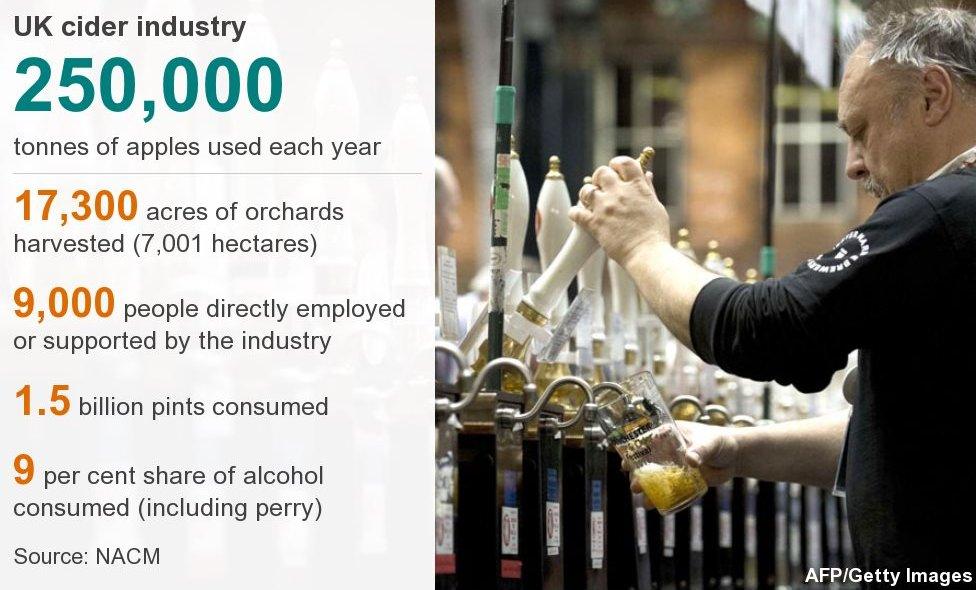
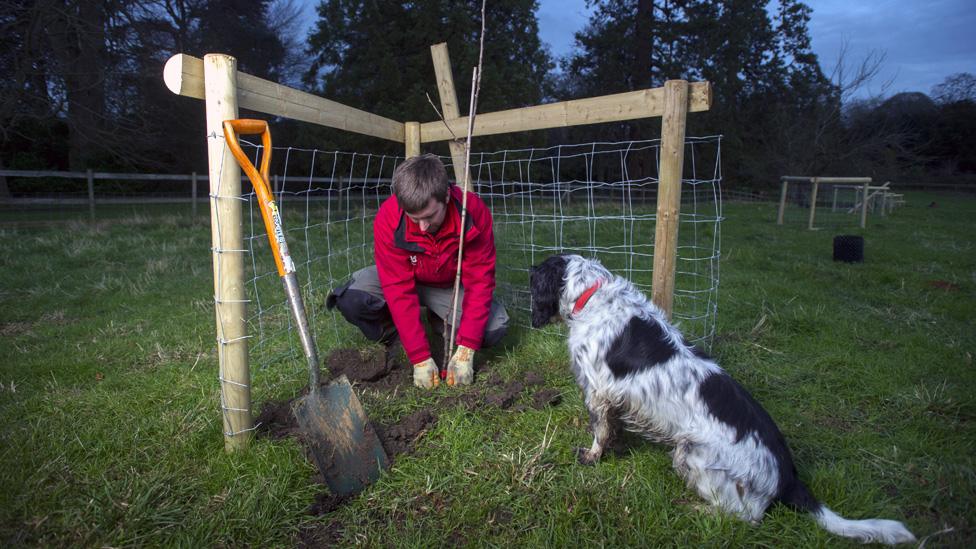
Area ranger George Holmes has been planting trees at Montacute House in Somerset
The National Trust said 90% of England's traditional orchards have disappeared in the last 60 years, with older varieties often uprooted and the land used for development.
Head of nature conservation at the trust, David Bullock, said orchards were "part of our national heritage". At least two trees of each variety will go into the National Trust's plant conservation centre in Devon to "help future-proof them from diseases", he said.
Dr Richard Stone, of the University of Bristol, told the BBC that many of the names dated back to the 17th Century, when there was a push on high-quality cider, promoted as "Vinatum Britannica", to compete with French wine imports.
As producers now tend to favour the healthiest trees which produce bulk crops, the older "slightly less efficient" varieties have stopped being grown.
Dr Stone added: "The best ciders are a blend so by having 300 different applies to choose from, you have got so many possibilities there."
- Published12 June 2014
